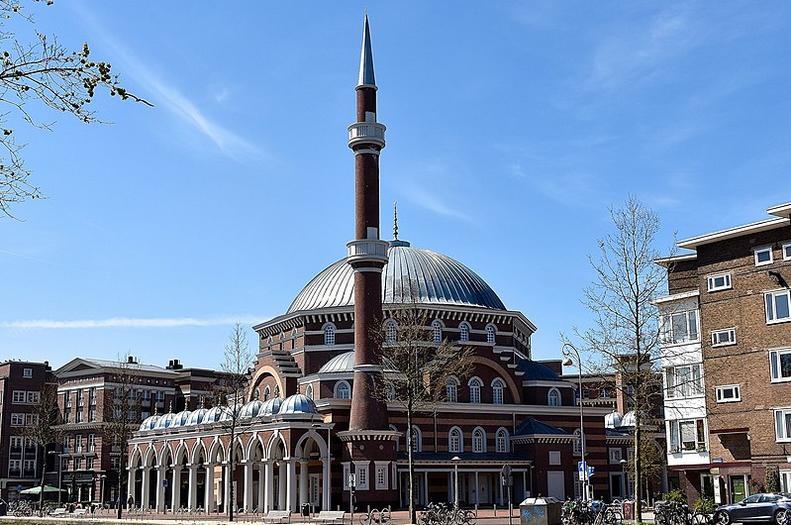ജഹന്നം: മുന്നറിയിപ്പും മോചനപാതയും

ജഹന്നം: ഖുർആനിലെ ഭീതിയുടെയും കരുണയുടെയും സന്ദേശം
ഇസ്ലാമിൽ ജഹന്നം ഭയപ്പെടുത്തുന്ന ഒരു ആശയമാത്രമല്ല; അത് മനുഷ്യനെ ഉണർത്തുന്ന, ഉത്തരവാദിത്വബോധത്തിലേക്ക് വിളിക്കുന്ന, ദൈവിക നീതിയുടെ മുന്നറിയിപ്പാണ്. ജഹന്നത്തെക്കുറിച്ചുള്ള ഖുർആനിക വിവരണങ്ങൾ മനുഷ്യഹൃദയത്തെ വിറപ്പിക്കുന്നതാണെങ്കിലും, അവയുടെ ഉള്ളാർഥം ഭീതിയല്ല—മോചനമാണ്. അല്ലാഹു മനുഷ്യനെ നശിപ്പിക്കാൻ അല്ല, രക്ഷിക്കാൻ ആണ് മുന്നറിയിപ്പുകൾ നൽകുന്നത്.
ഈ ലേഖനത്തിൽ, ജഹന്നത്തിന്റെ അർത്ഥം, ഖുർആനിലെ വിവരണങ്ങൾ, അവിടെ എത്തിക്കുന്ന പ്രവൃത്തികൾ, കൂടാതെ ജഹന്നത്തിൽ നിന്ന് രക്ഷപ്പെടാനുള്ള ആത്മീയവും പ്രായോഗികവുമായ മാർഗങ്ങൾ എന്നിവയെ ഒരു ആത്മീയ–മിസ്റ്റിക്കൽ ദൃഷ്ടികോണത്തിൽ വിശദമായി പരിശോധിക്കാം.
ജഹന്നം എന്നതിന്റെ അർത്ഥവും ആശയവും
ഭാഷാപരമായ അർത്ഥം
“ജഹന്നം” എന്ന പദം അറബിയിൽ ആഴമേറിയതും ഭയാനകവുമായ ഒരു കുഴി എന്ന അർത്ഥം നൽകുന്നു. ഇസ്ലാമികമായി, അത് പരലോകത്തിലെ ശിക്ഷാസ്ഥലമാണ്, അവിടെ അല്ലാഹുവിന്റെ സന്ദേശം നിഷേധിക്കുകയും അകൃത്യങ്ങളിൽ മുങ്ങുകയും ചെയ്തവർ ശിക്ഷ അനുഭവിക്കും.
“അവിശ്വാസികൾക്കായി ഞങ്ങൾ ഒരുക്കിയിരിക്കുന്നത് ജഹന്നത്തിന്റെ തീയാണ്.”
(സൂറത്തു ഫുര്ഖാൻ 25:11)
ഭീതിയോടൊപ്പം നീതി
ജഹന്നം ക്രൂരതയുടെ ഫലമല്ല; അത് ദൈവിക നീതിയുടെ അനിവാര്യമായ പ്രതിഫലനമാണ്. അല്ലാഹു ഒരിക്കലും അനീതി ചെയ്യുന്നില്ല.
“നിന്റെ രക്ഷിതാവ് ദാസന്മാരോട് അനീതി ചെയ്യുന്നവനല്ല.”
(സൂറത്തു ഫുസ്സിലത് 41:46)
ഖുർആനിലെ ജഹന്നത്തിന്റെ ദൃശ്യങ്ങൾ
തീ മാത്രം അല്ല ജഹന്നം
ഖുർആൻ ജഹന്നത്തെ വെറും തീയായി മാത്രമല്ല ചിത്രീകരിക്കുന്നത്; അത് ശാരീരികവും ആത്മീയവുമായ വേദനകളുടെ സ്ഥലം ആണ്.
“അവർക്കായി ജഹന്നത്തിൽ തീക്കിടക്കകളും മീതെ മൂടികളും ഉണ്ടാകും.”
(സൂറത്തു അഅ്റാഫ് 7:41)
ഭക്ഷണവും പാനീയവും
ജഹന്നത്തിലെ ഭക്ഷണം പോലും ശിക്ഷയാണ്.
“അവർക്കുള്ള ഭക്ഷണം സഖ്കൂം വൃക്ഷത്തിൽ നിന്നായിരിക്കും.”
(സൂറത്തു സാഫാത്ത് 37:62–66)
“തിളച്ച വെള്ളം അവർക്ക് കുടിക്കുവാൻ നൽകപ്പെടും; അതു അവരുടെ ഉള്ളറകൾ കീറിത്തെറിപ്പിക്കും.”
(സൂറത്തു മുഹമ്മദ് 47:15)
അവസാനമില്ലാത്ത പശ്ചാത്താപം
ജഹന്നത്തിലെ ഏറ്റവും ഭയാനകമായ ശിക്ഷ പശ്ചാത്താപമാണ്, പക്ഷേ അത് വൈകിപ്പോയിരിക്കും.
“ഞങ്ങളെ ഇവിടെ നിന്നു പുറത്തെടുക്കേണമേ; ഇനി ഞങ്ങൾ നന്മ മാത്രം ചെയ്യും.”
(സൂറത്തു ഫാതിർ 35:37)
പക്ഷേ, ആ അഭ്യർത്ഥന സ്വീകരിക്കപ്പെടില്ല.
ജഹന്നത്തിലേക്ക് നയിക്കുന്ന വഴികൾ
കുഫ്റും ശിർക്കും
അല്ലാഹുവിനെ നിഷേധിക്കുന്നതും അവനോട് കൂട്ടുചേർക്കുന്നതും ജഹന്നത്തിലേക്കുള്ള ഏറ്റവും വലിയ വഴി ആണ്.
“നിശ്ചയമായും അല്ലാഹുവിനോട് ശിർക്ക് ചെയ്യുന്നവനു ജന്നത്ത് അവൻ നിരോധിച്ചിരിക്കുന്നു.”
(സൂറത്തു മായിദ 5:72)
അനീതി, അഹങ്കാരം, അകൃത്യം
ജഹന്നം വിശ്വാസരാഹിത്യത്തിനൊപ്പം നൈതിക വീഴ്ചകളുടെയും ഫലമാണ്.
“അഹങ്കാരം കാണിച്ചവരുടെ താമസം ജഹന്നമായിരിക്കും.”
(സൂറത്തു സുമർ 39:60)
സാമൂഹിക പാപങ്ങൾ
അനാഥരെ പീഡിപ്പിക്കൽ, ദരിദ്രരെ അവഗണിക്കൽ, അനീതി – ഇവയെ ഖുർആൻ ശക്തമായി അപലപിക്കുന്നു.
“ദീൻ നിഷേധിക്കുന്നവനെ നീ കണ്ടുവോ? അവൻ അനാഥനെ തള്ളിക്കളയുന്നു.”
(സൂറത്തു മാഊൻ 107:1–2)
ജഹന്നം: ഭയമല്ല, ബോധവത്കരണം
മുന്നറിയിപ്പ് ഒരു കരുണയാണ്
ജഹന്നത്തെക്കുറിച്ചുള്ള ഖുർആനിക വിവരണങ്ങൾ അല്ലാഹുവിന്റെ കരുണയുടെ ഭാഗമാണ്. മുന്നറിയിപ്പില്ലാതെ ശിക്ഷിക്കുക അനീതിയാണ്.
“നാം ഒരു ദൂതനെ അയക്കാതെ ശിക്ഷിക്കുന്നില്ല.”
(സൂറത്തു ഇസ്റാഅ് 17:15)
മനുഷ്യന്റെ ഉത്തരവാദിത്വം
ജഹന്നം മനുഷ്യന്റെ സ്വതന്ത്ര തെരഞ്ഞെടുപ്പിന്റെ ഫലമാണ്.
“ആരെങ്കിലും സത്യമാർഗം സ്വീകരിച്ചാൽ, അത് അവന്റെ ആത്മാവിനാണ്; വഴിതെറ്റിയാൽ, അതിന്റെ ദോഷം അവനുതന്നെയാണ്.”
(സൂറത്തു ഇസ്റാഅ് 17:15)
ജഹന്നത്തിൽ നിന്ന് രക്ഷപ്പെടാനുള്ള വഴികൾ
സത്യമായ തൗബ (പശ്ചാത്താപം)
ജഹന്നത്തിൽ നിന്ന് രക്ഷപ്പെടാനുള്ള ഏറ്റവും വലിയ വാതിൽ തൗബ ആണ്.
“വിശ്വസിക്കുന്നവരേ, അല്ലാഹുവിലേക്കു സത്യമായ പശ്ചാത്താപത്തോടെ മടങ്ങുക.”
(സൂറത്തു തഹ്രീം 66:8)
അല്ലാഹുവിന്റെ കരുണ പാപങ്ങളെക്കാൾ വലുതാണ്.
“അല്ലാഹുവിന്റെ കരുണയിൽ നിരാശപ്പെടരുത്.”
(സൂറത്തു സുമർ 39:53)
ഇമാനും സൽപ്രവൃത്തികളും
വിശ്വാസം വാക്കുകളിൽ ഒതുങ്ങരുത്; അത് പ്രവൃത്തികളായി മാറണം.
“വിശ്വസിക്കുകയും സൽപ്രവൃത്തികൾ ചെയ്യുകയും ചെയ്യുന്നവർക്കായി ജന്നത്തുകൾ ഉണ്ട്.”
(സൂറത്തു ബഖറ 2:25)
നമസ്കാരവും ദിക്റും
നമസ്കാരം മനുഷ്യനെ അകൃത്യങ്ങളിൽ നിന്ന് തടയുന്നു.
“നമസ്കാരം അശ്ലീലതയിലും അകൃത്യങ്ങളിലും നിന്ന് തടയും.”
(സൂറത്തു അങ്കബൂത്ത് 29:45)
ദിക്ർ ഹൃദയത്തെ ശുദ്ധീകരിക്കുന്നു.
“അല്ലാഹുവിന്റെ സ്മരണയാൽ ഹൃദയങ്ങൾ ശാന്തമാകുന്നു.”
(സൂറത്തു റഅദ് 13:28)
കരുണയും ദാനവും
ജഹന്നത്തിൽ നിന്ന് രക്ഷപ്പെടാനുള്ള വഴികളിൽ പ്രധാനമാണ് മനുഷ്യരോടുള്ള കരുണ.
“ഒരു അണുവിന്റെ ഭാരമെങ്കിലും നന്മ ചെയ്തവൻ അതു കാണും.”
(സൂറത്തു സൽസല 99:7)
ആത്മീയ–മിസ്റ്റിക്കൽ ദൃഷ്ടികോണം
ജഹന്നം ഹൃദയത്തിനുള്ളിലും
സൂഫി ദർശനത്തിൽ, ജഹന്നം പരലോകത്തിൽ മാത്രമല്ല; ഹൃദയത്തിലെ അഹങ്കാരം, വൈരം, ദൈവവിസ്മരണം എന്നിവയും ഒരു ജഹന്നമാണ്.
“അല്ലാഹുവിനെ മറക്കുന്നവരെപ്പോലെ ആവരുത്; അവൻ അവരെ സ്വയം മറക്കുമാറാക്കി.”
(സൂറത്തു ഹഷ്ർ 59:19)
ജന്നത്തിലേക്കുള്ള വഴി ഹൃദയശുദ്ധിയാണ്
ഹൃദയം ശുദ്ധമാകുമ്പോൾ, ജഹന്നത്തിന്റെ വിത്തുകൾ തന്നെ നശിക്കുന്നു.
“ശുദ്ധമായ ഹൃദയത്തോടെ അല്ലാഹുവിന്റെ അടുക്കൽ എത്തുന്നവനാണ് വിജയി.”
(സൂറത്തു ശുഅറാഅ് 26:89)
മരണവും ജഹന്നത്തിന്റെ ഓർമ്മയും
മരണം ജഹന്നത്തെക്കുറിച്ചുള്ള ഏറ്റവും വലിയ ഓർമ്മപ്പെടുത്തലാണ്.
“ഓരോ ആത്മാവും മരണത്തെ അനുഭവിക്കും.”
(സൂറത്തു ആലു ഇംറാൻ 3:185)
ഈ ഓർമ്മ മനുഷ്യനെ അഹങ്കാരത്തിൽ നിന്ന് വിനയത്തിലേക്കും, അനാസ്ഥയിൽ നിന്ന് ജാഗ്രതയിലേക്കും നയിക്കുന്നു.
സമാപനം: ജഹന്നം അവസാനമല്ല, മുന്നറിയിപ്പാണ്
ജഹന്നം ഇസ്ലാമിൽ ഭീതിയുടെ മതിൽ അല്ല; രക്ഷയുടെ ദീപസ്തംഭമാണ്. അല്ലാഹു മനുഷ്യനെ ഭയപ്പെടുത്തുന്നത് അവനെ നശിപ്പിക്കാൻ അല്ല, നിത്യവിജയത്തിലേക്ക് നയിക്കാൻ ആണ്.
ജഹന്നത്തെക്കുറിച്ചുള്ള അറിവ് മനുഷ്യനെ ഇങ്ങനെ പഠിപ്പിക്കുന്നു:
ജീവിതം ഉത്തരവാദിത്വമാണ്.
ഓരോ പ്രവൃത്തിക്കും പ്രതിഫലമുണ്ട്.
കരുണയുടെ വാതിൽ ഇനിയും തുറന്നിരിക്കുന്നു.
അല്ലാഹു നമ്മെ ഓർമ്മിപ്പിക്കുന്നു:
“ജഹന്നത്തിന്റെ തീയിൽ നിന്ന് yourselves രക്ഷിക്കുക.”
(സൂറത്തു തഹ്രീം 66:6)
ആ ഓർമ്മപ്പെടുത്തൽ തന്നെ, മോചനത്തിലേക്കുള്ള ആദ്യപടിയാണ്.
Please continue reading https://drlal.in/how-to-seek-allahs-help
